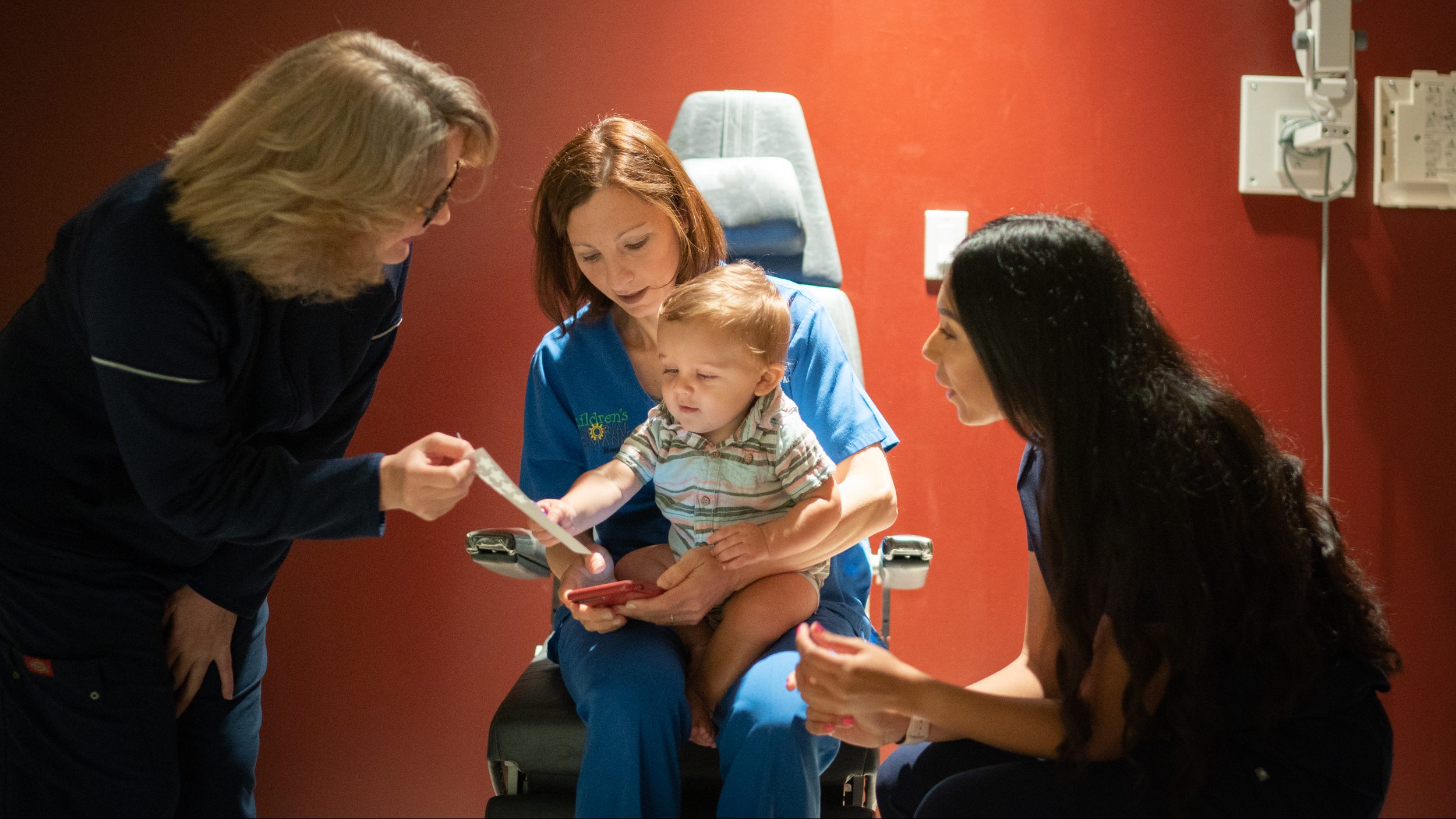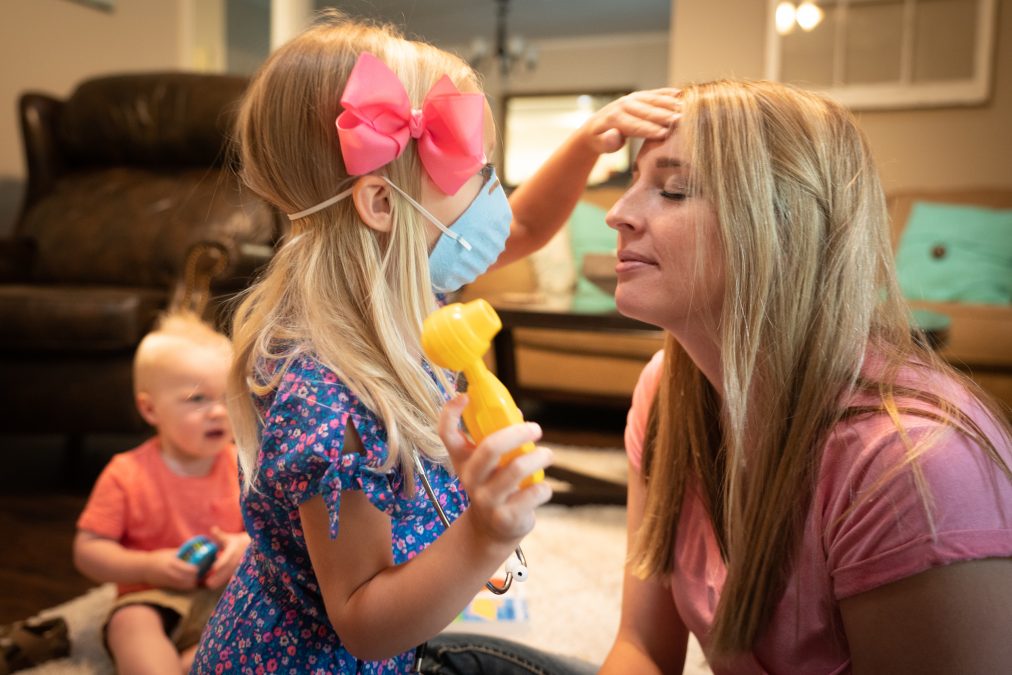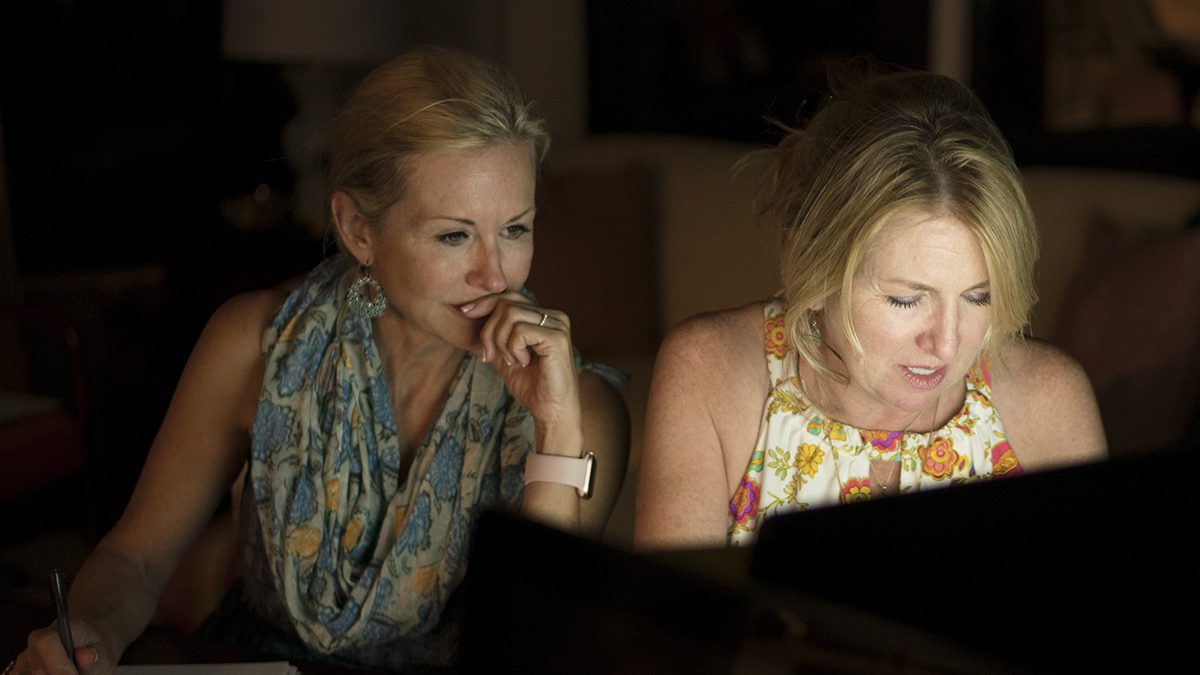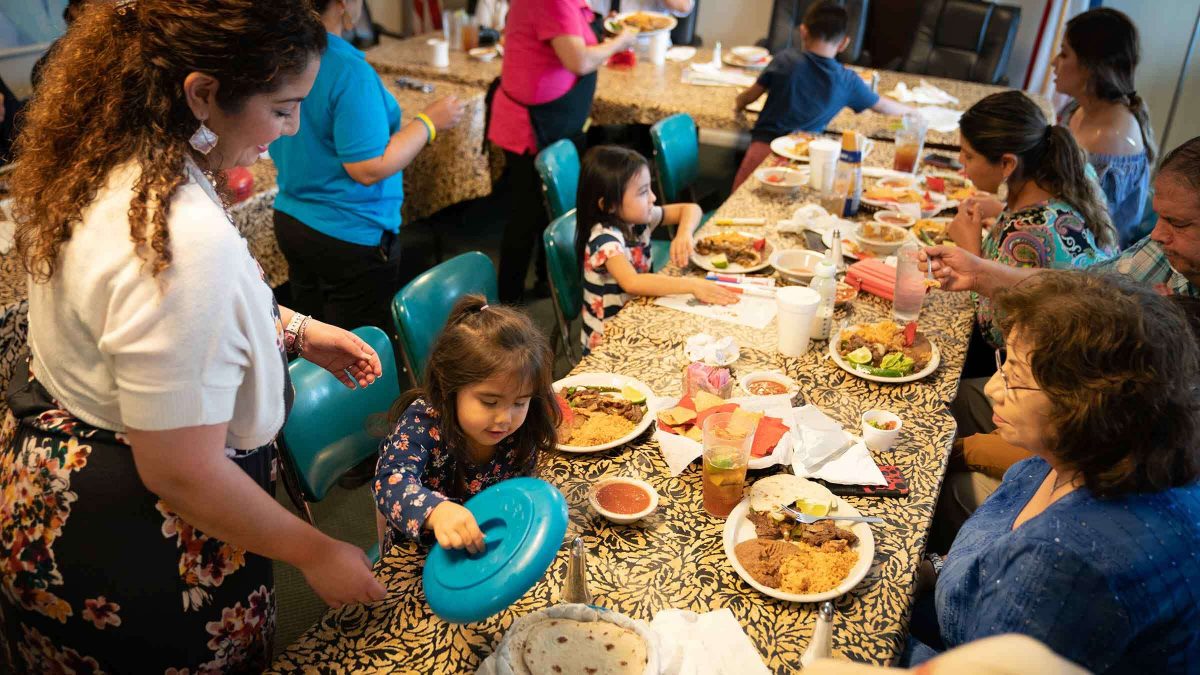10 Tips for Parents of Kids With Cancer

CaringBridge Staff | 07.27.21
Learning your child has a chronic illness is a feeling you cannot prepare for. The new and unfamiliar stresses can cause intense feelings of love, sadness, grief, panic, and guilt. All those feelings are completely normal and valid. However, there are ways to cope with these new emotions that both you and your child may be facing.
1. Accept the New Normal
Instead of focusing on getting back to the life you had, try to shift your focus on your “new normal.” Take time to mourn the loss, but then look to the present. Your child is still your child, even if your family must find new ways to do things, it can help to find ways to help your child live life in these new circumstances. One way of doing this is by looking for little moments of joy and hope in yours and your child’s life.
2. Break Down the Diagnosis With Your Child
Talking to your child about their cancer diagnosis is not something any parent wants to prepare for. But when you find yourself in this situation there are ways to make it a little less scary for both you and your child.
Start off by choosing a comfortable location to have this conversation in. A bedroom, living room, or other space where your child spends a lot of time will help both you and your child feel safe.
Be honest with your child. Choose what information to share based on your child’s age but always be honest. As you share the news encourage your child to ask questions and be open with their thoughts.
Offer reassurance. Remind your child that you love them, and that they will get through this and that you will be with them every step of the journey.
Prepare your child for what comes next. The new reality for your family will look different with doctor’s visits, treatments, and new rules and limitations for your child. Prepare them for that. Read more about how to share the cancer diagnosis with your child.
3. Cherish Every Moment

Stay present and enjoy the time you have with your child during this time. Never give up and try not to dwell on the past or what-could-have-been. You’re going to have hard days, but there will also be so many good days and good moments. Recognize those moments when they happen and celebrate them.
4. Advocate for Your Child
Your child may struggle to explain what they’re feeling. As a parent, you know when something is wrong. Don’t hesitate to voice your concerns.
Don’t be afraid to ask questions. You are getting thrown into a world you know very little about. It is going to require a lot of asking questions to fully understand everything your child is going through. Write down the information you need to remember, so you can refer back to it when you need to.
Never feel bad for asking questions. It’s always okay to ask for clarification, more information, or examples. Medical jargon can be complicated, but you are your child’s best advocate.
5. Let Them be Kids
Try to make things fun for your child. Try to keep them happy and smiling. Make hospital stays and long doctor’s appointments comfortable. Bring toys, books, stuffed animals, and other things that are familiar.
Your child may not be able to do all the same activities that they used to do but find ways to adapt their favorite sports or hobbies to this new normal, or find new activities that they enjoy doing. Don’t make them feel like they’re sick. Let them be regular kids.
6. Research, but Know When to Take a Break

For some, research can be a source of comfort. Reading about your child’s type of cancer can better prepare you for what to expect, understand the treatment prescribed by your medical team and help you ask the right questions when speaking to your child’s doctors.
It can also help you learn how your child’s cancer diagnosis might affect his or her life. Will they still be able to continue with their activities? Stay in school? What will their day-to-day look like? Knowing common answers to these questions can help you plan for the future, and also comfort your child should they ask you.
But don’t get too caught up in reading anything and everything about your child’s cancer. The information can be draining and overload your brain. Don’t forget to also take breaks from the reading and focus on spending time with your child.
7. Take a Break
Take care of yourself the best that you can. It might not seem like the right time, but taking care of yourself remains one of the most important things you can do. It’s harder to take care of your child and be present with their care when your health is not prioritized. Start simple, with activities like:
- Exercise – Pick a method you enjoy, whether it be yoga, biking or a long walk
- Eat well – Consume what makes your body and mind feel good
- Rest up – Try to get those 7-8 hours of ZZZs
- Read a book – Engage in an activity that helps your mind escape
- Deep breaths – Self-care can be as simple as taking a cleansing breath
8. Document Everything
Making a health binder can help you keep information organized and assist in your discussion with doctors.
Being an active participant in your child’s treatment can help you hold your doctors accountable, and present yourself as a well-informed, honest and committed parent. This can encourage doctors, nurses, clinicians and others to be respectful of your judgment.
Your binder can also help you get familiar with how your child reacts to certain medications, what works the best, and what doesn’t work. Plus, having all of the information together in one spot may speed up appointments, which can create a better quality of life for you and your child.
9. Speak to Parents With Similar Experiences

10. Let People Help
Lean on those around you. Your support system is larger than you’d think, and they want to help you during your child’s health journey.
Don’t be shy to ask for what you need. Financial assistance, helping with meals or carpool, taking care of the pet or housework can all be areas of life that need extra hands during this time.
Tip: The CaringBridge on-site Planner lets you easily coordinate care needs such as meals/food, transportation, chores, errands, childcare, petcare, and even scheduling visits.
Don’t go through your health journey alone.
You can stay connected to friends and family, plan and coordinate meals, and experience love from any distance.
All of this is ready for you when you start your personal CaringBridge site, which is completely free of charge, ad-free, private and secure. Don’t spend another minute alone!
What’s Your Story?
Has your family’s life been touched by a child with cancer? What were some of the ways that you found support? If you’d like to share your story, please comment below. Your experience may help other parents who may be going through this, too.
We have a grandson that took his own life. We are desperate !
Cancer affected my best person in life that it even caused us to leave in different places from one another. Cancer took him away from me.
So sorry you both are going through this. We will continue praying for you! Let me know if I can do anything for you. Carol and Tony
I would so love to write to Kathy Kauffmann, who is SO sick…..But can’t get through to her. I am SO frustrated. I love her so much.